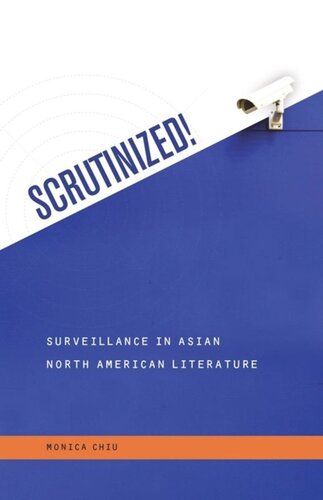

Most ebook files are in PDF format, so you can easily read them using various software such as Foxit Reader or directly on the Google Chrome browser.
Some ebook files are released by publishers in other formats such as .awz, .mobi, .epub, .fb2, etc. You may need to install specific software to read these formats on mobile/PC, such as Calibre.
Please read the tutorial at this link: https://ebookbell.com/faq
We offer FREE conversion to the popular formats you request; however, this may take some time. Therefore, right after payment, please email us, and we will try to provide the service as quickly as possible.
For some exceptional file formats or broken links (if any), please refrain from opening any disputes. Instead, email us first, and we will try to assist within a maximum of 6 hours.
EbookBell Team

4.7
36 reviewsChang-rae Lee’s Native Speaker, Kerri Sakamoto’s The Electrical Field, Don Lee’s Country of Origin, Mohsin Hamid’s The Reluctant Fundamentalist, Susan Choi’s A Person of Interest. These and a host of other Asian North American detection and mystery titles were published between 1995 and 2010. Together they reference more than a decade of Asian North America monitoring that includes internment, campaign financing, espionage, and post-9/11 surveillance. However, these works are less concerned with solving crimes than with creating literary responses to the subtle but persistent surveillance of raced subjects. In Scrutinized! Monica Chiu reveals how Asian North American novels’ fascination with mystery, detection, spying, and surveillance is a literary response to anxieties over race. According to Chiu, this allegiance to a genre that takes interruptions to social norms as its foundation speaks to a state of unease at a time of racial scrutiny.
Scrutinized! is broadly about oversight and insight. The race policing of the past has been subsumed under post-racism—an oversight (in the popular nomenclature of race blindness) that is still, ironically, based on a persistent visual construction of race. Detective fiction’s focus on scrutiny presents itself as the most appropriate genre for revealing the failures of a so-called post-racialism in which we continue to deploy visually defined categories of race as social realities—a regulatory mechanism under which Asian North Americans live the paradox of being inscrutable. To be looked at and overlooked is the contradiction that drives the book’s thesis. Readers first revisit Oriental visions, or Asian stereotypes, and then encounter official documentation on major events, such as the Japanese American and Japanese Canadian internment. The former visions, which endure, and the latter documents, diplomatically forgotten, shape how Asian subjects were and are scrutinized and to what effect. They determine which surveillance images remain emblazoned in a nation’s collective memory and which face political burial. The book goes on to provide a compelling analysis of mystery and detective fiction by Lee, Nina Revoyr, Choi, Suki Kim, Sakamoto, and Hamid, whose work exploits the genre’s techniques to highlight pervasive vigilance among Asian North American subjects.